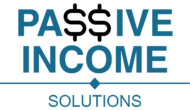Investing in a laundromat can be a lucrative opportunity for those seeking to generate passive income. The laundry industry offers a stable and consistent source of revenue, making it an attractive option for individuals looking to diversify their income streams.
Disclaimer: This information is general in nature and for informational purposes only. It is not personal financial advice and has not taken into account your personal financial position or objectives. Make sure to refer to a licensed financial or tax advisor.
Table of Contents
Is Investing in a Laundromat a Good Idea for Passive Income?
Understanding the Laundromat Industry
The laundromat industry plays a crucial role in providing essential services to communities. As more people seek convenient and time-saving options for laundry, laundromats have become increasingly popular. The steady demand for laundry services contributes to the potential for generating passive income through a laundromat business.
Market Research for Laundromat Investment
Before venturing into laundromat ownership, conducting thorough market research is essential. Understanding the local demand for laundry services, competitors in the area, and demographic factors can provide valuable insights into the viability of investing in a laundromat for passive income.
Calculating the Potential Return on Investment
Assessing the potential return on investment is critical for evaluating the passive income potential of a laundromat. Factors such as initial investment, operating expenses, and revenue projections need to be carefully analyzed to determine the profitability of owning a laundromat as a source of passive income.
Pros and Cons of Owning a Laundromat
Exploring the Benefits of Passive Income Stream
Owning a laundromat can offer a range of benefits as a passive income stream. With efficient management and a strong customer base, laundromats can provide consistent revenue with relatively low involvement compared to other business ventures.
Risks and Challenges in Laundromat Ownership
While laundromats can be a source of passive income, there are inherent risks and challenges involved. Factors such as equipment maintenance, utility costs, and potential fluctuations in customer traffic need to be carefully considered to mitigate the risks associated with laundromat ownership.
Managing Cash Flow and Expenses
Effective management of cash flow and expenses is crucial for sustaining a profitable laundromat business. Monitoring operating costs, optimizing utility usage, and implementing efficient expense management strategies are essential for maintaining a healthy cash flow and maximizing passive income potential.
Is Owning a Laundromat Really Passive Income?
So, is owning a laundromat really passive income? Well, it “can” provide a source of passive income, but it’s not exactly “set it and forget it.”
While the machines do the actual washing and drying, the business still requires maintenance, cleaning, and customer service. Additionally, there can be unexpected issues that arise with the machines or the facility that need to be addressed. Laundromats also need to be marketed in order to attract customers and generate revenue. So, not completely passive!
However, once the initial setup and ongoing maintenance are in place, a well-managed laundromat can provide a relatively passive income stream. With good management and efficient operations, a laundromat can bring in a steady income without requiring constant attention from the owner. Plus, the demand for clean clothes will likely continue, making a laundromat a relatively stable investment in the long run.
So while owning a laundromat may not be completely hands-off, it can still be a profitable and relatively passive source of income. Ultimately, it’s important for potential laundromat owners to carefully consider the level of involvement and commitment required before diving into this type of business ownership.
Key Considerations Before Buying a Laundromat
Lease Agreement and Location Selection
Choosing the right location and negotiating favorable lease agreements are pivotal considerations when buying a laundromat. Access to a steady customer base and a strategic location can significantly impact the passive income potential of the laundromat business.
Vending Machines and Ancillary Revenue
Integrating vending machines and ancillary revenue streams can supplement the passive income generated by the laundromat. Offering additional services or products within the laundromat premises can contribute to maximizing the overall revenue and enhancing the passive income potential.
Maintenance and Upkeep of Laundry Equipment
Maintaining high-quality laundry equipment is essential for the smooth operation of a laundromat business. Regular maintenance, timely repairs, and equipment upgrades are critical for ensuring customer satisfaction and optimizing the passive income potential of the laundromat.
Maximizing Profit in the Laundromat Business
Implementing Efficient Operations for Passive Income
Streamlining operations and optimizing workflow can significantly impact the profitability of a laundromat business. Utilizing efficient processes, investing in modern laundry technology, and providing superior customer service are key strategies for maximizing passive income in the laundromat industry.
Marketing Strategies for Laundromat Owners
Effective marketing initiatives play a vital role in attracting and retaining customers for a laundromat. Leveraging digital marketing, local promotions, and customer loyalty programs can contribute to expanding the customer base and increasing the passive income potential of the laundromat business.
Benefits of a Well-Maintained Dryer and Washer Fleet
Ensuring the proper maintenance and functionality of dryers and washers is essential for delivering quality service to customers. A well-maintained laundry fleet not only enhances customer satisfaction but also contributes to the long-term profitability and passive income generation of the laundromat.
Using a Laundromat as a Side Hustle for Passive Income
Balancing a Laundromat Investment with Other Ventures
For individuals seeking a side hustle as a source of passive income, a laundromat investment can be a viable option. Balancing a laundromat business with other ventures or commitments provides the flexibility to diversify income streams while benefiting from the consistent revenue generated by the laundry industry.
Exploring the Flexibility of Laundromat Ownership
Laundromat ownership offers flexibility in terms of operational management and time commitment. This flexibility can be advantageous for individuals seeking a passive income opportunity that allows for greater control over work-life balance and the potential to explore other investment opportunities.
Community Involvement and Customer Loyalty
Engaging with the local community and prioritizing customer satisfaction can foster strong customer loyalty, creating a sustainable customer base for the laundromat business. Building strong relationships within the community can contribute to the long-term success and passive income potential of the laundromat.
FAQ
Q: What are the benefits of investing in laundromats?
A: Investing in laundromats can provide a passive income stream, as people always need laundry facilities. It’s also considered a recession-proof business, especially in urban areas with high population density.
Q: Are laundromats a good investment for passive income?
A: Yes, laundromats can be a good investment for passive income because they offer a steady cash flow, especially when located in high-traffic areas. With the right management, laundromats can provide consistent returns.
Q: What are the cons of owning a laundromat?
A: Some cons of laundromat ownership include the initial high investment for setting up the business, ongoing maintenance costs for washers and dryers, as well as the need to stay updated with market trends and competition.
Q: How can I make my laundromat business more passive?
A: You can make your laundromat business more passive by offering additional services like wash-and-fold, implementing efficient management systems, and considering investing in newer, more energy-efficient washers and dryers.
Q: What are some tips for setting up a successful laundromat business?
A: It’s essential to conduct thorough market research, create a detailed business plan, secure a suitable location, and invest in quality washers and dryers. Additionally, offering amenities such as free Wi-Fi can attract more customers.
Q: How can I invest in laundromats?
A: You can invest in laundromats by purchasing an existing business or by setting up a new one. Conducting due diligence and seeking advice from industry professionals can help make informed investment decisions.
Q: Are laundromats a viable option for achieving financial freedom?
A: Yes, laundromats can be a part of a diversified investment portfolio to achieve financial freedom. With the right location and management, a successful laundromat business can generate substantial passive income.
Q: What are the main factors to consider before investing in laundromats?
A: Before investing in laundromats, it’s important to consider the population density of the area, market demand for laundry facilities, the condition of existing laundromats in the vicinity, and the potential for additional revenue streams such as vending machines or laundry supplies.
Q: How recession-proof are laundromats as an investment?
A: Laundromats are considered relatively recession-proof because people always need laundry services regardless of economic conditions. In fact, during economic downturns, the demand for laundromat services may even increase as individuals aim to save on costs by using self-service facilities.
Q: What are some other ways to make a laundromat business more profitable?
A: In addition to offering wash-and-fold services, you can explore adding vending machines for laundry supplies, providing comfortable seating and amenities for customers, and potentially expanding to multiple locations once the initial business is established.







